Nuestra Historia
Talleristas por la Justicia (TPLJ – Training for Change, por sus siglas en inglés) es una organización de entrenamiento y desarrollo de habilidades para activistas y organizadores. Creemos que un taller sólido y el asesoramiento de grupos son vitales para la construcción del movimiento en pro de la justicia social y el cambio radical.
Desde 1992, hemos apoyado grupos a tomar acción directa, contribuyendo al crecimiento de organizaciones y equipos fuertes, y trabajando en las bases populares. Cada año en Norteamérica, y también internacionalmente, formamos personas en diversos temas y sectores: desde retiros para desarrollar estrategias de campaña contra la gentrificación para grupos comunitarios y talleres en asesoramiento para dirigentes sindicales, hasta habilidades de de-escalación de conflictos para grupos de derechos de inmigrantes que se oponen a la deportación.
Nos comprometemos con la transformación: más allá de proporcionar nuevas herramientas y habilidades, apoyamos a la gente para que enfrenten conflictos, para que reten creencias autolimitantes, y para que expandan sus posibilidades y las de sus grupos. Creemos que un taller es más eficaz cuando se construye a partir de la sabiduría que proviene de la experiencia de vida de las personas. Nuestra práctica centrada en el participante sigue las dinámicas emergentes del grupo en un taller, se adapta a las culturas y las teorías de cambio locales, y está orientada a la acción; llamamos a esta práctica Educación Directa.
Somos expertos en trabajo intercultural y llevamos conciencia de poder, identidad y conflicto a cada taller que hacemos. Como organización, estamos comprometidos a apoyar a comunidades históricamente marginadas en los Estados Unidos y en todo el mundo, incluyendo a indígenas, negros y otras personas de color, a la clase trabajadora y comunidades pobres; y a las mujeres, femmes (lesbianas de apariencia femenina), personas transgénero y personas con género no confirmado. También trabajamos para aumentar el acceso lingüístico a capacitaciones y herramientas, especialmente para los hispanohablantes.
Nuestro enfoque de Educación Directa
En el corazón de TPLJ existe una práctica compartida de taller y aprendizaje grupal, que ha evolucionado por más de 25 años de trabajo con activistas, organizadores y creadores de cambio.
Así como la acción directa se enfrenta directamente a los sistemas de injusticia, nuestro enfoque desafía la educación tradicional, confrontando las creencias, los conflictos y la opresión que previenen que los líderes y grupos sean lo más poderosos que pueden ser; por eso lo llamamos Educación Directa.
La educación directa trata sobre la liberación y el empoderamiento. A diferencia de la educación tradicional, que deposita la experiencia en libros de texto y profesores, la Educación Directa da lugar a la sabiduría propia de la experiencia de la gente. La práctica surge de las tradiciones de la educación popular, como las popularizadas por el educador brasileño Paulo Freire, y construye sobre ellas. Hemos aprendido lecciones de docenas de modalidades y enfoques de enseñanza, haciendo accesibles los elementos más útiles en nuestros talleres de talleristas.
Nuestro enfoque está centrado en los grupos. Nuestros talleristas construyen sobre las dinámicas del grupo en espacio de entrenamiento y la experiencia propia de las personas para introducir nuevos contenidos y ayudar al grupo a tener acceso a su propia sabiduría. Esto profundiza el aprendizaje en la taller y también cultiva recursos a los que las personas pueden acceder mucho después de terminado el taller.
Los siguientes son algunos de los elementos de nuestro enfoque de Educación Directa:
Diseño emergente: en nuestro enfoque, los facilitadores son expertos en adaptar el programa en medio de un taller para alcanzar las necesidades de un grupo y satisfacer mejor sus metas de aprendizaje. Nuestros talleristas, al inicio del taller, suelen utilizar herramientas específicamente para «diagnosticar» las necesidades del grupo y realizar cambios en la agenda. De esta forma, están preparados para los problemas, los desafíos y las ventajas de crecimiento que se presenten. El diseño emergente no se trata de dejar que el grupo haga lo que quiera, sino que es la capacidad de identificar momentos de aprendizaje y momentos transformadores de los que los participantes puedan aprender nuevos contenidos con más eficacia.
Diferencia y diversidad: no sólo una teoría, sino una temática del taller: creemos que el compromiso contra la opresión aparece en todos los niveles de entrenamiento (el diseño del taller, los ejercicios usados, el contenido del taller, etc.). Por lo tanto, prestamos constante atención a las dinámicas entre la corriente dominante y la no dominante del un grupo, para estar listos y apoyar al grupo a profundizar en este tema.
Los momentos de enseñanza sobre diversidad a menudo surgen de expresiones inconscientes sobre estereotipos u otros comportamientos opresivos. Dado a que estamos abiertos al grupo y utilizamos el diseño emergente, somos capaces de aprovechar estos momentos y estamos dispuestos a trabajar los conflictos a medida que surjan.
El taller como laboratorio: basamos gran parte de nuestro diseño sobre un modelo de cuatro pasos de educación experiencial: Experimentar, Reflexionar, Generalizar, Aplicar. Sin incorporar la parte de la Aplicación en un taller, la nueva información o las acciones son difíciles de interiorizar, y el participante regresa a casa casi como vino. Una forma en que enfrentamos este desafío es creando el taller como un laboratorio en el que los participantes prueban nuevos comportamientos en el mismo cuarto de entrenamiento, practican nuevas habilidades y planifican cómo aplicar lo aprendido cuando regresen a casa.
Diferentes estilos de aprendizaje: la educación tradicional enfatiza la lectura, la escritura y los sermones como formas principales de aprendizaje. Reconocemos que las personas aprenden en formas muy diferentes: visual, auditiva, a través del cuerpo (cinestésica), a través de las conexiones emocionales, y más. Diseñamos para una diversidad de estilos de aprendizaje; por ejemplo, utilizando ejercicios de aprendizaje basado en la aventura y otras herramientas cinestésicas, en lugar de depender sólo de los canales de aprendizaje auditivos y visuales.
Tomar riesgos como una forma de aprendizaje: los entrenadores de TPLJ trabajan bajo el principio de que el aprendizaje profundo significa cambio, y el cambio requiere tomar riesgos; el trabajo del facilitador consiste en no sólo dar lugar al riesgo, sino también hacer que el taller sea un espacio seguro para tomar riesgos. Esto tiene implicaciones en el diseño de la agenda y la facilitación (como «construir el contenedor» intencionalmente), pero también significa que los mismos facilitadores deben tomar riesgos, incluyendo el riesgo de ser transparentes con los participantes.
Lo anterior proporciona una muestra de nuestro trabajo, aunque existen muchas más características del enfoque único de Educación Directa de TPLJ, en especial cuando se aplica en contextos específicos como talleres interculturales, entrenamientos de acción directa, desarrollo de estrategias, y talleres de transformación y alto nivel de conflicto. ¡La mejor manera para tener una idea sobre nuestro enfoque es experimentar un taller en persona!
¡Conozca a nuestro gente!
Core Trainers
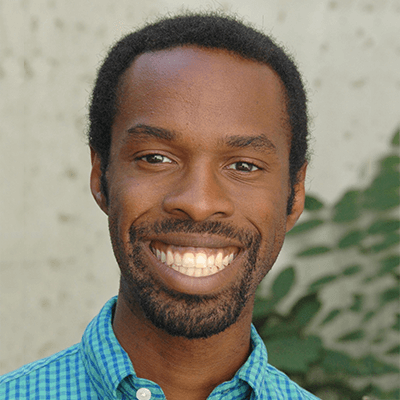
Matthew Armstead
Matthew Armstead is a community builder, facilitator, and organizer in Philadelphia, PA, and he is a trainer with Training for Change. He has worked with diverse groups of people from Occupy Wall Street activists to Ivy League university students, and led sessions on a variety of topics, such as anti-oppression, strategic planning, community outreach, peer counseling, nonviolent direct action, training of trainers, and organizational development. He has designed workshops on raising class awareness among students, building toward racial justice with college administrators, utilizing conflict with LGBTQ community leaders, and fostering an inter-generational movement with Occupy activists.
Dedicated to social change, Matthew develops curricula based on the framework of interlocking oppression with the goal of increasing people power. He is passionate about using music, theater, and dance to learn from groups and create dynamic change. Matthew has spent time fostering community among LGBTQA people as well as being an ally to student movements. He has been an organizer for large social justice convergences, most recently as core organizer during the Occupy National Gathering. He is currently working as a part of the grassroots, nonviolent direct action campaign, Earth Quaker Action Team.
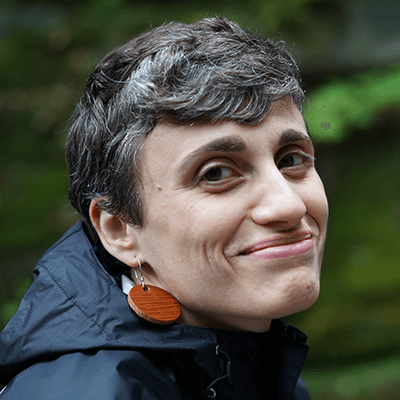
Katey Lauer
Katey Lauer is an organizer, facilitator and trainer in Central Appalachia, with a deep love of place. She has worked with grassroots groups in and outside of the mountains for ten years, as lead organizer in student/worker campaigns to take on Sodexo, as Coordinator of The Alliance for Appalachia, as Coordinator of Appalachia Rising and The March on Blair Mountain, and as organizer with Advocates for a Safe Water System. She has provided mentorship to young people throughout the country including members of the Highlander Center’s Appalachian Fellowship and students with the national Divestment Student Network. She is currently the Director of The West Virginia Trainers Project, as well as a part-time Administrator with The West Virginia Mine Wars Museum, and an Honorary Member of UMWA Local 1440.
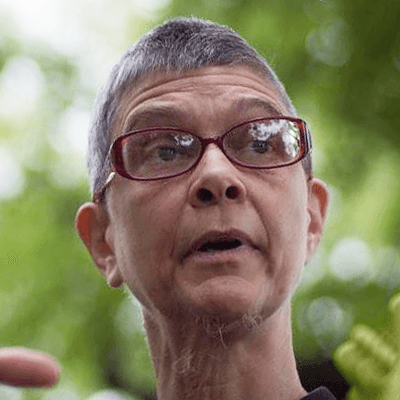
Erika Thorne
Erika Thorne has been a progressive activist, writer, facilitator and cultural worker since 1974. She focuses on cross-race coalition-building, anti-racism work with other whites, and diversity work. Erika has worked with environmental and media justice groups, undocumented immigrants, Hmong organizations, domestic violence activists, housing projects residents, the national education department of a large US union, and a full range of non-profits, organizers and rabble-rousers. In 2012, she collaborated with local training organizations to co-facilitate four workshops for 98 Burmese nonviolent activists in northern Thailand. She trains multi-racial groups of trainers in the UK through Campaign Bootcamp, and in northern Europe with Vredesactie. Erika is on the core organizing team of SURJ-MN (a white co-conspirator group.) She also loves to facilitate training of trainers, hate-crimes response, conflict waging, ethical grassroots fundraising, and meetings – especially real sticky ones! Erika was the Managing Director of MN Friends for a Nonviolent World for nearly three years, and coordinated the Alternatives to Violence Project-MN, offering intensive workshops in prisons and jails, for five years. As a former dancer for social change, she brings joyful physicality to her facilitation.
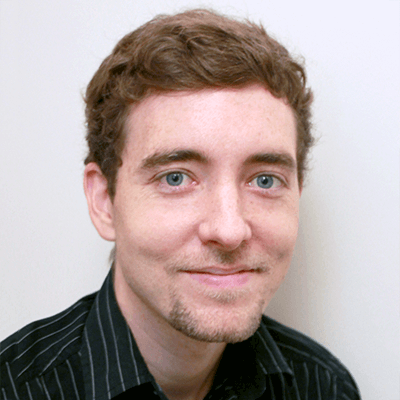
Andrew Willis Garcés
Andrew Willis Garcés works primarily with organizations that want to transform their practices to become more powerful, by offering coaching and strategy support for organizational leaders, curriculum development to support the nurturing of new practices, and trainings for the organization as a whole.
Originally from Memphis and now based in North Carolina after several years in Texas, Andrew especially enjoys working with Southern organizations, and with roots in Colombia, has worked with Spanish-speaking immigrant groups around the country, in addition to organizations in Colombia, Ecuador and Mexico.
For organizing groups, he also offers support planning outside-the-box campaigns that use creative direct action to expand what’s possible. Here are some articles about campaigns he has helped undocumented immigrants and taxi drivers to win. He’s also worked on successful campaigns with janitors’ unions, public housing tenant associations and immigrant voters, and two short campaigns to impact US foreign policy towards Colombia, Obama Remember Us and No More Broken Hearts. He also helped plan a campaign that resulted in a new income tax increase on the top 2% of taxpayers in the District of Columbia to pay for safety net services.
He’s also trained hundreds of people in civil disobedience techniques, including groups of white people and faith activists who want to be more powerful accomplices to Movement for Black Lives and immigrant-led organizations.
Andrew has also worked with numerous youth and student groups, and has taught undergraduate courses for Georgetown University’s Program on Justice and Peace.
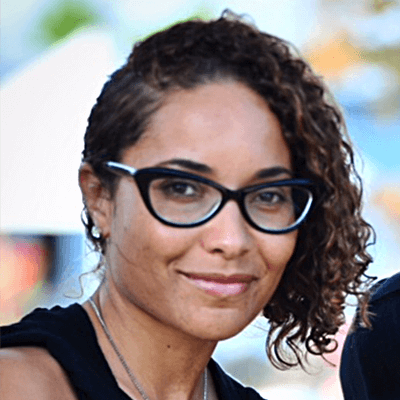
Naomi Long
Naomi has almost two decades experience as a community organizer, youth mentor, and teacher. She began as a faith-based community organizer with the Gamaliel Foundation and organized successful statewide grassroots campaigns around the DREAM Act, education funding policy, and prison reform. From there, her passion for intersectional organizing brought her to D.C. as the Metro Director for the Drug Policy Alliance, where she helped lead a winning drug policy reform campaign. She served as Senior Principal at Wellstone Action for six years, where she built a national network of youth organizers and trained hundreds of progressive organizers and candidates. As the proud owner of her family’s nine-acre farm in Texas Hill Country, Naomi hopes to continue the legacy of black-owned farms and community-based entrepreneurship. Naomi lives in Houston and on most days can be found finding balance between being tough minded and tender hearted.
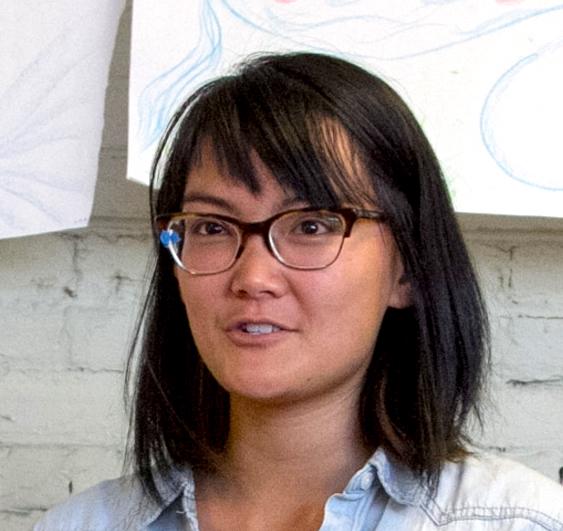
Kim Huynh
Kim Huynh is an organizer, facilitator, and community weaver based in Philly. Over the last decade, Kim has strategized, struggled, and been sharpened alongside immigrant black and brown women to win the best municipal Domestic Workers Bill of Rights in the country; multiracial faith groups for living wage jobs and energy democracy in Philly; community organizations fighting against environmental racism and gentrification in Houston’s Black, Latinx, and Southeast Asian working class neighborhoods; and creative direct action and mass mobilization projects across the country.
A 2014 recipient of the Judith C. Jones Fellowship for Trainers of Color with Training for Change, Kim brings her rebel heart and an unwavering belief that transformation is possible and constant to her liberation work. As the first-born daughter of first-generation Vietnamese refugee immigrants, she bridges continents, cultures, languages, issues, and identities and carries that literal and metaphorical translation into her work with groups waging grassroots campaigns, building leadership, navigating conflict, and trying on new shapes to increase their power through facilitation and curriculum building.
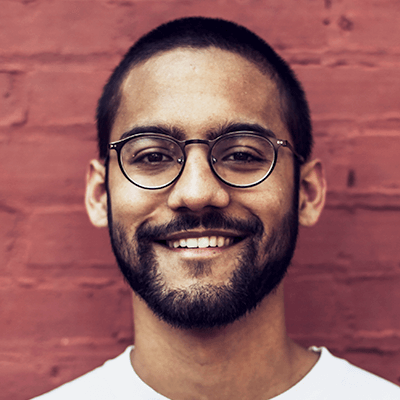
Zein Nakhoda
Director & Core Trainer
Zein is a trainer, media maker, and organizer based in Philadelphia. He’s organized for environmental justice through fossil fuel divestment campaigns and as a co-founder of Philly Thrive, a community organization fighting environmental racism and fossil fuel expansion. He’s made community and movement media with Scribe Video Center, Media Mobilizing Project, and independently. His latest film, Grounded While Walls Fall explores practices and rituals of resilience among organizers in Greater Philadelphia. He’s also a compa member of LeftRoots.
Zein has been in relationship with Training for Change since 2009 and joined staff in 2017; he’s now Director and a Core Trainer.
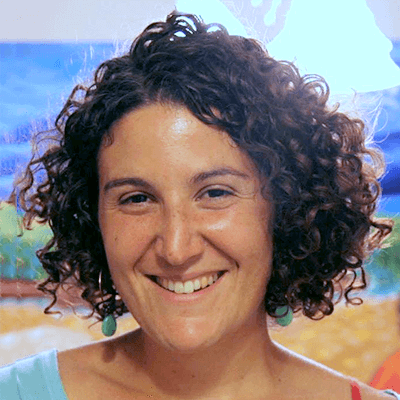
Celia Kutz
Celia Kutz has been training and facilitating in the movement for social change for 15+ years. Her primary home during this time has been Training for Change, as Core Trainer and Co-Director. Her background in organizing and training is diverse. For eight years she lived in Minnesota, working with neighborhood folks fighting for self-determination and as the coordinator of a national network of street medics and wellness healers to support mass protest during the 2008 RNC. Nationally, she has led direct action trainings to stop the Keystone XL Pipeline, convened Jews working to end the occupation of Palestine prior to the 2010 US Social Form, and supported leaders from a wide range of groups including Momentum, the Wildfire Project, Sierra Club, Service Employees International Union, West Virginia Can’t Wait, and Siembra NC.
Celia works 1-1 with activists in their context and supports whole organizations to move through a process. Her approach blends her study of somatics, strategy, spirituality and nature alongside an early interest in dissonance and tension in groups. This led her to quickly dive into the study and practice of World Work, a project held by Process Work Psychology, in which conflict is facilitated in groups of 100+ from across the world. Celia is a trained mediator and restorative justice practitioner, loves training trainers and facilitating hot spots in group conflict.
Publications
Facilitating Conflict and Leading from the Feminine
Healing Justice Podcast, Nov 2017
Healing Justice Podcast, Reflection Part 2, the Power of Practice, August 2018
Tips for White Trainers Leading Multiracial Groups
Training for Change Article, September 2015
How Black Lives Matter came back stronger after white supremacist attacks
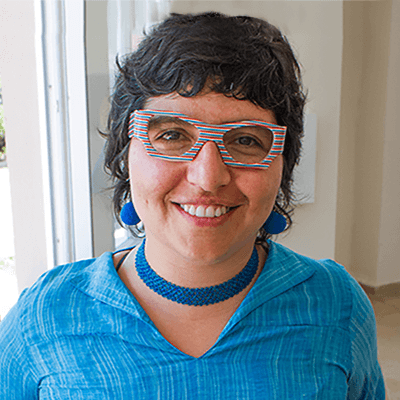
Andrea Parra
Andrea Parra is a Colombian attorney and law professor who has worked for over 15 years on issues related to gender-based violence, sexual and reproductive rights, disability justice and immigrant rights. She has conducted numerous trainings to activists, public officials, survivors, students and academics among others. She has trained in Spain, United States, Morocco, Turkey, Mexico, Nicaragua, Argentina, Puerto Rico, Brazil, Switzerland and various cities in Colombia. She has received over 200 hours of training from Training for Change and currently heads the Action Program for Equality and Social Inclusion, a human rights clinic at the University of Los Andes in Bogotá, Colombia.
Staff

Zein Nakhoda
Director & Core Trainer
Zein is a trainer, media maker, and organizer based in Philadelphia. He’s organized for environmental justice through fossil fuel divestment campaigns and as a co-founder of Philly Thrive, a community organization fighting environmental racism and fossil fuel expansion. He’s made community and movement media with Scribe Video Center, Media Mobilizing Project, and independently. His latest film, Grounded While Walls Fall explores practices and rituals of resilience among organizers in Greater Philadelphia. He’s also a compa member of LeftRoots.
Zein has been in relationship with Training for Change since 2009 and joined staff in 2017; he’s now Director and a Core Trainer.
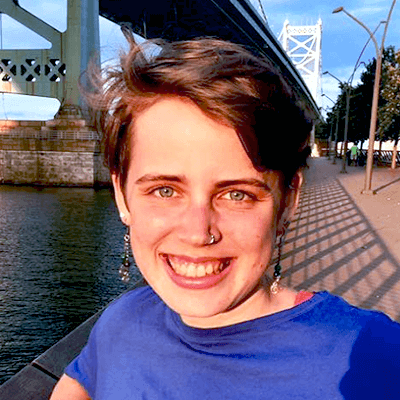
Ali Roseberry-Polier
Office Manager
Ali is an organizer and storyteller living in Philadelphia. She’s worked towards environmental justice, racial justice, and queer liberation through running campaigns, designing exhibits, and planning workshops.
Board Members
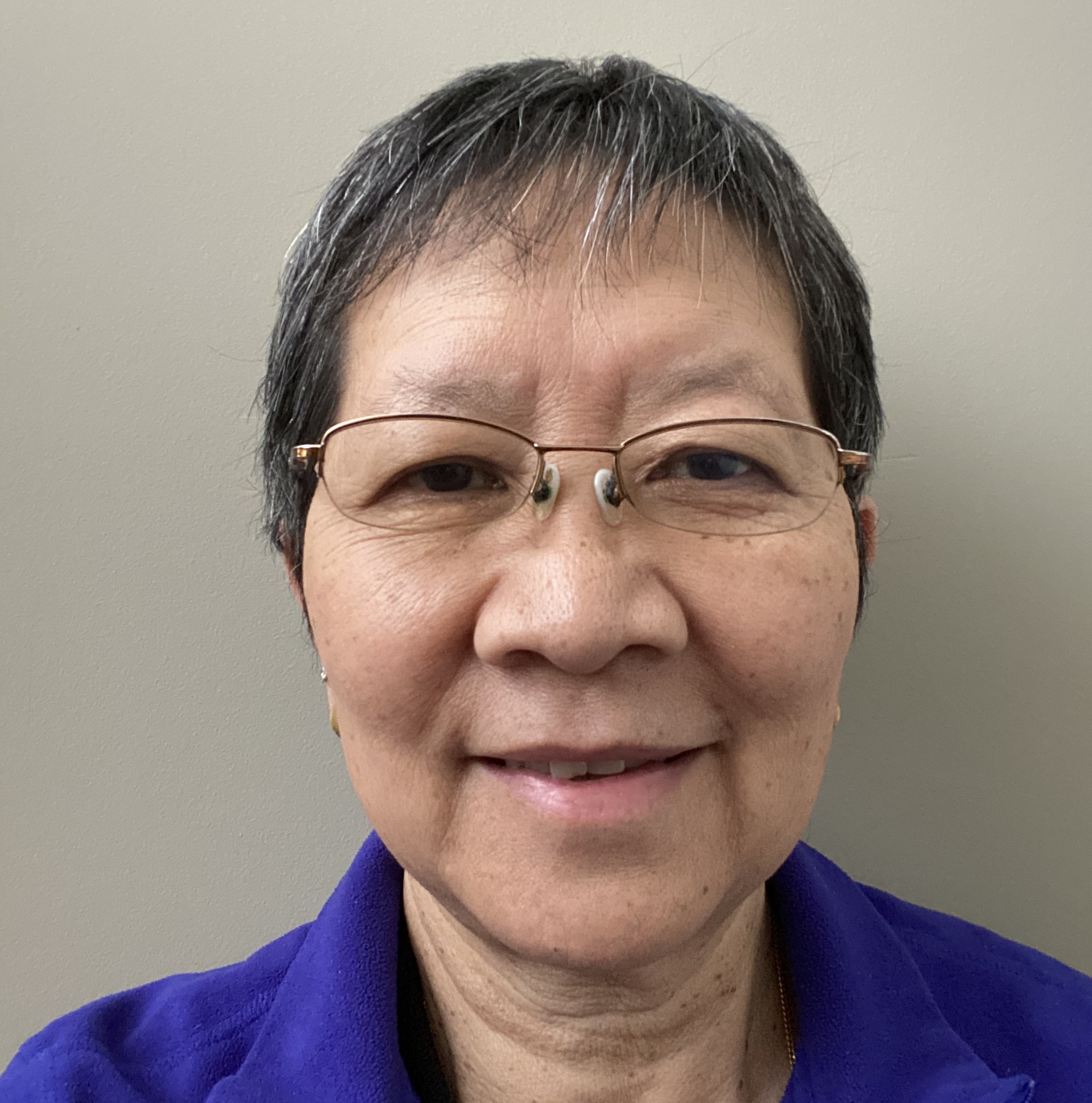
Allison Chin
Allison Chin (she/her, they/them) is originally from New York City, grew up in Southern California and has lived in Leesburg, VA for the past 11 years. They are a retired biologist and, since 2008, have been immersed in non-profit governance, and organizational and leadership development. Allison is particularly excited about working with organizers, activists and change makers to facilitate the deep individual and group work that is transformational and long-lasting. They are nourished by being outdoors, gardening, and carving wooden spoons.
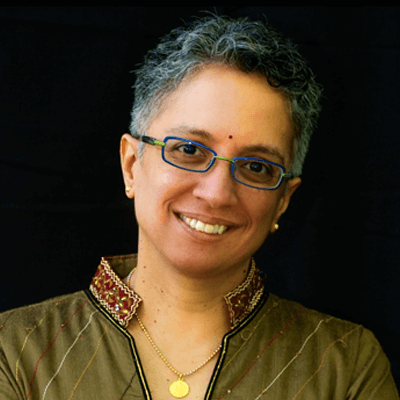
Vega Subramaniam
Vega Subramaniam is a leadership coach, trainer, and long-time activist promoting gender, racial, LGBTQ, and economic justice. She’s facilitated leadership workshops, given keynote addresses, and presented leadership trainings for college students as well as for local and national organizations. One of her favorite activities is facilitating daylong Intentional Life Planning workshops with her wife, Mala Nagarajan. She has also taught sociology and worked in student services at Penn State University, Western Washington University, and the University of Washington.
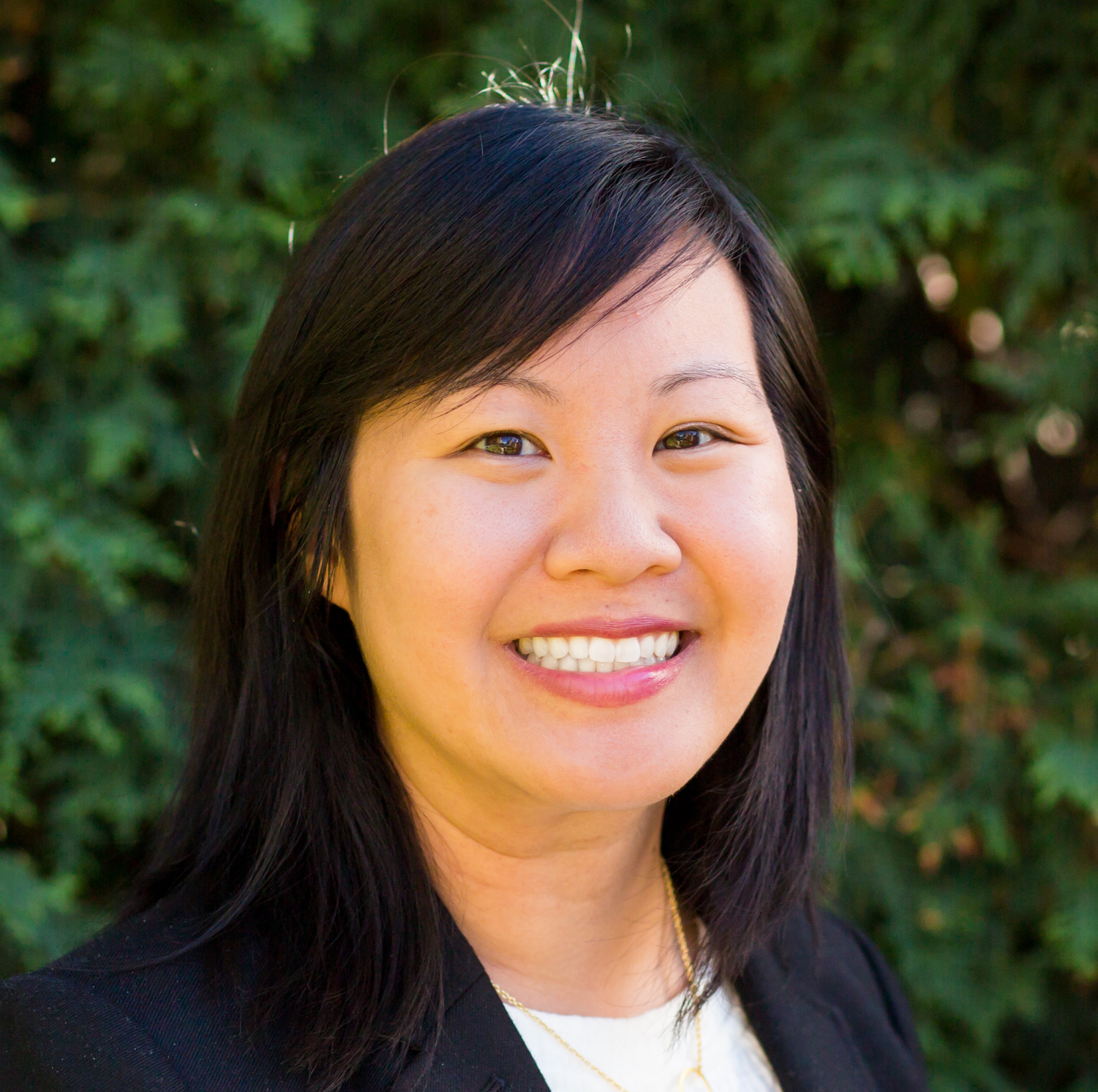
Kelley Lou
Kelley Lou is the Training and Capacity Building Manager at National CAPACD. Her work for the past decade has been committed to empowerment and community building for Asian American Pacific Islander (AAPI) communities. She has facilitated and trained individuals and community-based organizations across the country to build their advocacy and leadership skills. She is also passionate about working closely with faith communities on social justice issues.
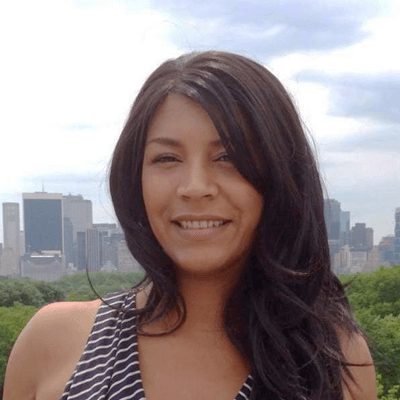
Janée Woods
Janée is the Director of Organizational Culture for the William Caspar Graustein Memorial Foundation, whose mission is to achieve equity in education by working with those affected and inspiring all to end racism and poverty. She also has several years of experience as a facilitator and trainer of grassroots organizers and community coalitions seeking to create change by addressing racism, economic injustice, early childhood education, and food security. She writes about social justice issues on her blog What Matters.
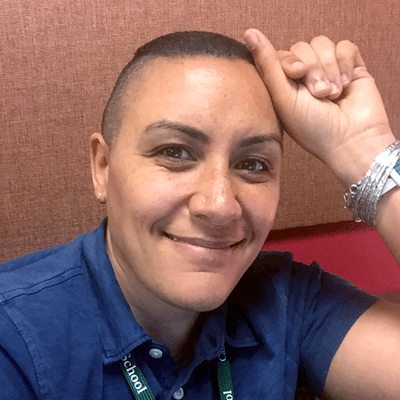
Hilary North
Hilary North (they/them/theirs) is Director of Diversity and Equity Initiatives at The Calhoun School in NYC. Their work in supporting anti-oppression change in independent schools spans twenty years and flows directly out of personal experience as a queer, black, multiracial transracial adoptee and parent. Hilary is particularly excited about opportunities that allow teachers and young people to explore the intersections between education and anti-oppression activism, and TFC workshops have been instrumental in resourcing their professional toolbox.
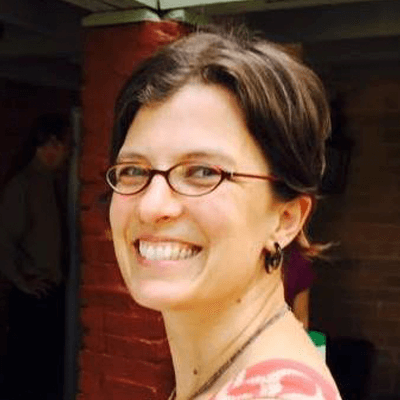
Sonia Silbert
Sonia Silbert (she/her) is the Trainings Director for 350Vermont and supports local nonprofits with facilitation and consulting. Originally from New York City, she lived in Washington, DC for ten years where she served as Executive Director of the Washington Peace Center, providing education, resources, and action for activists in DC working for social justice and a world free from oppression. She has personally led trainings for groups up to 400 on Nonviolent Direct Action, Grassroots Fundraising, and more. She now lives in Brattleboro, VT, where she supports local racial justice organizing, plays in the woods, and tries to keep up with a very energetic puppy and a very large garden.
Contáctenos
¿Tiene una pregunta o consulta? Cuéntenos. Nos encantaría saberlo.
info[at]trainingforchange[dot]org
